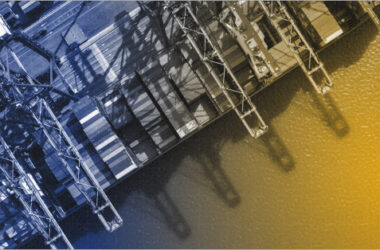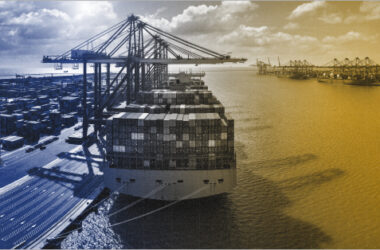Imagine your cargo stranded at sea, vulnerable to unpredictable weather or unexpected accidents. The mere thought can send shivers down your spine, right?
In India, countless businesses and individuals rely on marine transportation to move goods domestically and internationally. But what happens when unforeseen events—storms, theft, or damages—jeopardise those shipments? Without proper coverage, you could face substantial financial losses. That’s where a Marine Insurance Policy steps in as your safety net. In this blog, we will demystify who Marine Insurance covers in India, helping you understand its scope and ensuring your assets are always safeguarded. Dive in to uncover how this essential protection could be the lifeline your business or personal ventures need!
Who are the Key Stakeholders Marine Insurance Covers?
Marine Insurance is a cornerstone of global and domestic trade, providing financial protection against risks associated with the transportation of goods by sea, air, or land. In a country like India, where trade plays a significant role in the economy, this insurance coverage is indispensable. From natural calamities to piracy, marine cargo insurance protects businesses and individuals engaged in the transportation of goods. Understanding who Marine Insurance covers helps stakeholders make informed decisions and mitigate risks effectively.
A. Exporters and Importers
Exporters and importers are the backbone of international trade, and Marine Insurance is designed to safeguard their interests.
- Insurance Coverage: Protects against loss or damage to goods during transit via sea, air, or land.
- Risks Addressed: This insurance coverage includes theft, mishandling, natural disasters, and delays.
Example: An Indian exporter shipping textiles to Europe can rely on marine cargo insurance to cover damages caused by a fire during transit.
- Additional Insights: Exporters can opt for Marine Insurance policies with extended coverage for high-value or fragile goods. Similarly, importers may benefit from pre-shipment inspection clauses in marine cargo insurance that ensure product quality before transit.
B. Shipping Companies
Shipping companies play a critical role in moving goods across vast distances. Marine Insurance ensures their operations are protected.
- Coverage: Includes hull insurance coverage for vessels, liability insurance for crew and cargo, and freight insurance.
- Risks Addressed: A Marine Insurance Policy covers damage to ships, legal liabilities, and accidents during voyages.
Example: A shipping company transporting oil can benefit from Marine Insurance coverage for vessel repairs, pollution liabilities, and costs incurred due to a collision or oil spill.
- Additional Insights: Companies engaged in bulk shipping or hazardous materials often require specialised Marine Insurance Policy coverage, such as pollution liability or bunker fuel spill insurance.
C. Freight Forwarders and Logistics Providers
Freight forwarders and logistics providers often handle goods on behalf of exporters and importers. Marine Insurance often extends to these intermediaries.
- Coverage: Third-party cargo protection, liability insurance coverage, and operational risks.
- Risks Addressed: A Marine Insurance Policy covers loss or damage to goods under their custody.
Example: A logistics company transporting electronics can claim insurance for damages during transit, including theft, mishandling, or damage from external causes.
- Additional Insights: Freight forwarders often negotiate blanket Marine Insurance policies to cover multiple shipments, ensuring cost-effective protection for their operations.
D. Warehouse Owners and Port Operators
A Marine Insurance Policy also benefits those who store and handle goods in transit.
- Coverage: Marine Insurance provides coverage against storage-related risks such as theft, fire, or damage.
- Risks Addressed: A Marine Insurance Policy covers losses occurring at ports, warehouses, or terminals.
Example: A port operator managing a shipment of grains can rely on marine cargo insurance to cover losses from a fire outbreak at the terminal.
- Additional Insights: Warehouse owners can enhance their Marine Insurance cover with add-ons for specific risks, such as damage from rodents in long-term storage scenarios.
Scope of Insurance Coverage by Stakeholder Type
- Cargo Owners
- Marine cargo insurance provides comprehensive coverage for cargo owners, ensuring financial protection for goods in transit.
- Covered Risks: Theft, natural disasters, mishandling, and more.
- Custom Options: Add-ons for specific cargo types like refrigerated goods or hazardous materials.
Example: With marine cargo insurance, a pharmaceutical company shipping vaccines can secure their high-value cargo against temperature variations. - Additional Insights: Cargo owners can include clauses for financial protection in case of delayed delivery of critical components, though delay-in-startup coverage is often an additional coverage under specific policies.
- Vessel Owners
- For vessel owners, Marine Insurance safeguards their primary assets—the ships themselves.
- Covered Risks: A Marine Insurance Policy covers physical damage, operational risks, and crew liabilities.
- Benefits: The Marine Insurance coverage often extends to equipment, onboard technology, and machinery.
Example: With a Marine Insurance Policy, a fishing vessel owner can ensure protection against damages caused by a collision with another vessel. - Additional Insights: Modern vessels equipped with advanced navigation systems often require specific coverage for electronic failures or cyberattacks.
- Third Parties
- Marine Insurance also covers liabilities to third parties, ensuring comprehensive risk management.
- Covered Risks: Marine Insurance covers legal liabilities for damage to third-party properties or individuals.
- Benefits: A Marine Insurance Policy covers the costs related to accidents, environmental damage, or injuries.
Example: A shipping company causing oil spillage can rely on marine liability insurance coverage to manage cleanup costs and legal claims.
- Additional Insights: Third-party liability policies can be extended to include environmental restoration costs and penalties imposed by regulatory authorities.
Summary of Situations Covered by Marine Insurance
Marine Insurance provides protection in diverse scenarios, including:
- Natural Disasters: Storms, cyclones, and floods.
- Theft and Piracy: Losses due to stolen goods or hijacked vessels.
- Accidents: Collisions, fires, or capsizing during transit.
- Legal Liabilities: Cargo insurance claims arising from third-party damages.
- General Average Contributions: Shared losses when marine cargo is jettisoned to save a ship.
- Additional Insights: Marine cargo insurance policies often include clauses for acts of terrorism, geopolitical risks, or sanctions that can disrupt transit routes.
Typical Coverage Exclusions in Marine Insurance Policies
While Marine Insurance offers broad protection, certain risks are excluded:
- Wilful Misconduct: Losses caused intentionally by the insured are excluded in cargo insurance.
- Improper Packaging: Damage due to inadequate packing.
- Delays: While marine cargo insurance generally excludes losses from delayed shipments, some policies may offer coverage for consequential losses resulting from delays if explicitly included in the terms.
- Wear and Tear: Gradual deterioration of goods or vessels.
- Radioactive Contamination: Losses caused by nuclear risks are excluded in cargo insurance.
- Additional Insights: Stakeholders should review exclusions carefully and consider supplementary policies to bridge coverage gaps for high-risk ventures.
Importance of Customising Marine Insurance Policies
Marine Insurance isn’t one-size-fits-all. Customisation ensures stakeholders get maximum protection tailored to their specific needs.
- Exporters/Importers: Can include add-ons like war-risk coverage or storage insurance.
- Logistics Providers: May opt for policies that cover not only operational liabilities but also liabilities related to cargo handling, customs, and delivery.
- Tips: Assess risks, consult insurers, and review policy terms regularly.
- Additional Insights: Advanced analytics and IoT technologies can help businesses identify risk hotspots, enabling more precise policy customisation.
Example: A logistics provider transporting luxury cars may require specialised policies to cover high-value items.
Common Misconceptions About Marine Insurance Coverage
There are several myths surrounding Marine Insurance. Let’s address some:
- Myth: Only large businesses can avail Marine Insurance.
Fact: SMEs and individuals involved in trade can also benefit. - Myth: Marine Insurance only covers international shipments.
Fact: Domestic transit is equally eligible for coverage. - Myth: Claims are always delayed due to red tape or complex processes.
Fact: Prompt documentation ensures faster claim settlements. Leveraging digital platforms for claims submission and tracking has significantly reduced processing times.
The Bottomline:
Marine Insurance plays a pivotal role in protecting various stakeholders involved in trade and logistics in India. From exporters and importers to vessel owners and logistics providers, its coverage extends to ensure financial security and operational continuity. Understanding who and what Marine Insurance covers allows businesses to make strategic decisions, safeguarding their interests against unforeseen risks.
Whether you are a small-scale trader, a large shipping company, or a logistics provider, investing in a well-structured Marine Insurance Policy is crucial for mitigating risks and ensuring operational continuity.







